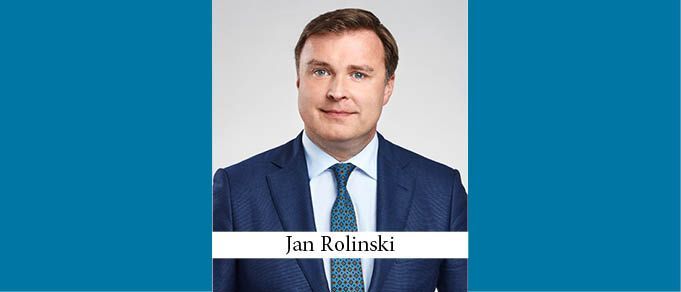The beginning of 2018 has been quite busy for many Polish law firms, according to Jan Rolinski, Senior Partner at WKB Wiercinski Kwiecinski Baehr. He expects that activity to persist throughout the rest of the year due to a number of legislative initiatives currently in the drafting process, which are “already causing a disturbance in the Polish market and keeping us occupied.”
The hottest topic for lawyers in Poland is the Disclosure Act, Rolinski says, which is designed to increase transparency and the amount of information available to the public. The draft act is still under discussion in the Ministries, and has yet to be sent for consideration to parliament. “Regardless of its final shape,” he says, “it is going to require a lot of attention and significantly add to the workload of regulatory and compliance lawyers.”
As Rolinski explains, the aim of the new act is “to prevent corruption, eliminate conflict of interests, and protect whistle-blowers.” In respect to whistle-blowers, the act is expected to provide for compensation for or protection from employment termination. In addition, enterprises which do not announce or enforce anticorruption bans face the risk of “fines or more serious consequences.” As an example from his own area of expertise, he explains that if the current draft is passed, businesses may be “de facto excluded from public procurement system for a few years, as they will not be able to participate in tenders once relevant authorities find their anti-corruption measures insufficient or fictitious.” Many businesses and lawyers consider these sort of sanctions “too far-going,” he adds.
Although Rolinski understands the “wish of the government to be open and counteract bribery,” he agrees that the means provided “seem to be excessive.”
Turning to another subject, Rolinski reports that the role of the General Counsel to the Republic of Poland (Prokuratoria Generalna Rzeczypospolitej Polskiej), an institution tasked with ensuring the security and effective protection of the rights and interests of the country, including the State Treasury, will be expanded to cover state enterprises. Thus, he says, “in many areas the State Treasury will effectively become our competition,” thus inevitably affecting the legal market itself.
However, this is not the only significant change in the legal market. Rolinski says that, “the future of the legal market in Poland is “to go big or become a boutique.” In his opinion, the market of big and mid-sized firms is heading towards consolidation. Consequently, firms unable or unwilling to “go big” have little other choice than aim towards a high degree of specialization by focusing on particular practices. “Boutique firms sell better in niche areas of law and business,” he says.
In the long run, Rolinski says, law firms are facing pressure to adjust to modern technology and artificial intelligence. “Our role is to prepare for a new era of automatic AI and IT solutions,” he says, “which is a challenge for the local firms that need to keep up with big internationals which can tap into technological investments made by their affiliated offices.” The push towards implementing efficient technological instruments, he emphasizes, means that law firms need to take a more business-focused approach than ever before. “We have to think business, which is also what our clients expect us to be doing as well.”


















